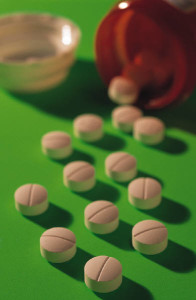In a tongue and cheek play on words, when it comes to mixing pharmaceuticals (prescription and over-the-counter) and herbal supplements, it makes a great deal of sense to watch your Ps and Qs (e.g. pharmaceuticals and Quercetin). Why you ask? Simple answer, your health and well-being may depe nd on it!
nd on it!
To dig a bit deeper, as our ideas and opinions about healthcare and the use of herbal and other supplements evolve, the use of herbs and other dietary supplements has become more commonplace. In fact, it is documented that an estimated 70% of the world’s population uses medicinal herbs for a host of reasons. And while there are many good reasons for using herbs and other supplements—availability (no prescription required), effectiveness, cost, and the fact they are derived from natural sources, it is also important to know that in combination, supplements and prescription drugs can be dangerous due to drug/herb interactions.
To offer a few examples, when taken in combination with prescription drugs, herbal supplements can alter the absorption of drugs into our system (either increase or decrease the absorption rate), interfere with the transport of prescription drugs to target organs or systems, and affect drug excretion rates through the liver, kidney, and bowel. Identified classes of drugs include cardiovascular, anticoagulant (blood thinners), psychiatric, statins (cholesterol reducing), oral contraceptives, and oral hypoglycemic (blood sugar).
Unfortunately, a main factor in our failing to recognize drug/herb interactions is that few patients disclose to healthcare practitioners their current and historical use of herbs and other supplements. Too often, we view herbs and dietary supplements as harmless. We fail to consider the potential for drug interaction.
For this reason, as a licensed nurse and energy practitioner, my client intake includes obtaining a detailed history and current list of supplement and prescription drug use. While I can’t prescribe or diagnose, knowing this history allows me to have a conversation with my client about whether their healthcare provider is aware of the herbs and other supplements they are using; a combination of which may be contributing to symptoms or ill-health.
Interested in reading more? There are many available resources. Here is one from nutrition.gov http://1.usa.gov/12ZlzDT
Source: Expert Rev Mol Diagn. 2012;12(8):815-830
An ounce of prevention is worth a pound of cure. ~ Benjamin Franklin





This is a great article on an important topic. They can make a big difference and I think a lot of us don’t realize how important it is to fully disclose everything we are taking. Thank you for sharing.